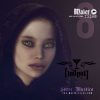C.G. Jung’s seminars on Nietzsche’s Thus Spake Zarathustra, held between 1934 and 1939, are a monumental exploration into the depths of Nietzsche’s philosophy through the lens of analytical psychology. Jung was profoundly influenced by Nietzsche, and in these seminars, he delved into the psychological underpinnings of Nietzsche’s work, examining it from the perspective of the collective unconscious and archetypal symbolism.
Jung saw Zarathustra as an essential text for understanding the human psyche and the spiritual dilemmas of the modern age. He approached Nietzsche’s work not merely as a philosophical treatise but as an extraordinary psychological document filled with rich symbolism and insights into the collective human experience.
Zarathustra and the Journey of Individuation
For Jung, Thus Spake Zarathustra represented Nietzsche’s exploration of the path to individuation—the process of becoming one’s true self. This is evident in Zarathustra’s teachings on the Übermensch (Overman) and the eternal recurrence, which reflect the struggles of the individual to transcend conventional morality and confront the deeper layers of the self.
One of the most significant aspects of Jung’s interpretation of Zarathustra was his view that Nietzsche himself underwent a process of individuation through writing the book. Jung pointed out that Nietzsche’s choice of Zarathustra as his prophet was symbolic. Zarathustra, as the first to establish the moral dichotomy of good versus evil, was now returning to transcend this very duality. This reflected Nietzsche’s struggle to move beyond traditional moral constraints and advocate for a new mode of existence, one that embraced both the light and shadow sides of the human experience.
The Lion and the Child
Jung’s analysis of Nietzsche’s metaphor of the Lion and the Child in Zarathustra is particularly striking. Nietzsche describes three metamorphoses of the spirit: the camel, the lion, and the child. According to Nietzsche, the camel represents the stage of carrying burdens, accepting moral and societal obligations. The lion represents the stage of rebellion, where one rejects these imposed values. Finally, the child symbolizes the creation of new values, free from the constraints of the past.
Nietzsche lived beyond instinct, in the lofty heights of heroic sublimity—heights that shattered his brain. He talked of yea-saying and lived the nay. – Jung
Jung elaborated on this metaphor, interpreting the lion as the emergence of the individual’s will to power. The lion’s roar is a defiant “No!” to the values imposed by society, religion, and tradition. But this is not the end of the journey. The child, for Jung, represents the archetype of rebirth and renewal, the ability to create new meaning from the destruction brought by the lion. This process, Jung argued, is at the core of the individuation journey: the destruction of old, inherited values and the creation of new, personal ones.
The Shadow of Nietzsche’s Zarathustra
Jung was also acutely aware of the darker aspects of Nietzsche’s philosophy. He believed that Nietzsche’s descent into madness was a direct consequence of his failure to integrate his shadow—the repressed aspects of his psyche. Nietzsche’s overwhelming focus on the Übermensch and the will to power, according to Jung, led him to ignore his human vulnerabilities. Jung remarked that Nietzsche’s psychosis was already present long before his mental collapse in 1889, and this was evident in the way Nietzsche portrayed the world in Zarathustra—a place devoid of instinctual warmth and full of cold intellectualism.
Jung’s Critique of Nietzsche
While Jung admired Nietzsche’s brilliance, he did not shy away from critiquing him. Jung believed Nietzsche’s philosophy was too one-sided, focusing excessively on the intellect and the will to power, neglecting the emotional and instinctual aspects of life. Jung saw this as a fatal flaw in Nietzsche’s approach, leading to an inner fragmentation that culminated in his mental breakdown. Nietzsche’s inability to integrate his shadow aspects—represented by his rejection of human emotions and relationships—was, for Jung, a warning about the dangers of extreme intellectualism.
Jung’s Seminar
Jung’s seminars on Zarathustra offer a profound psychological reading of Nietzsche’s work. They reveal not only Nietzsche’s genius but also his tragic limitations. Through his analysis, Jung encourages us to confront our own shadows, integrate the conflicting parts of our psyches, and embark on the journey of individuation, much like Zarathustra did in Nietzsche’s great work.




